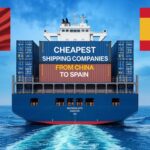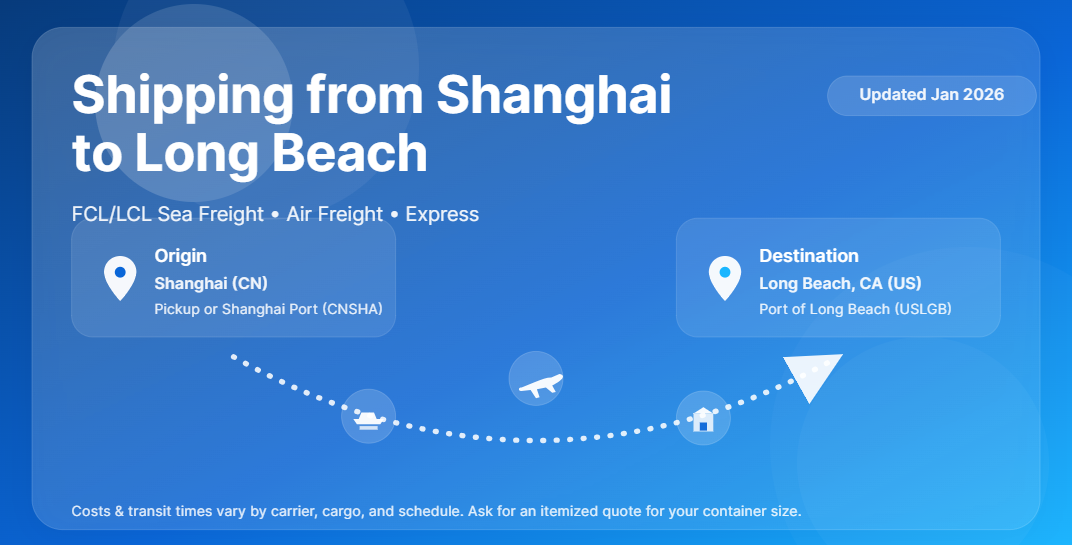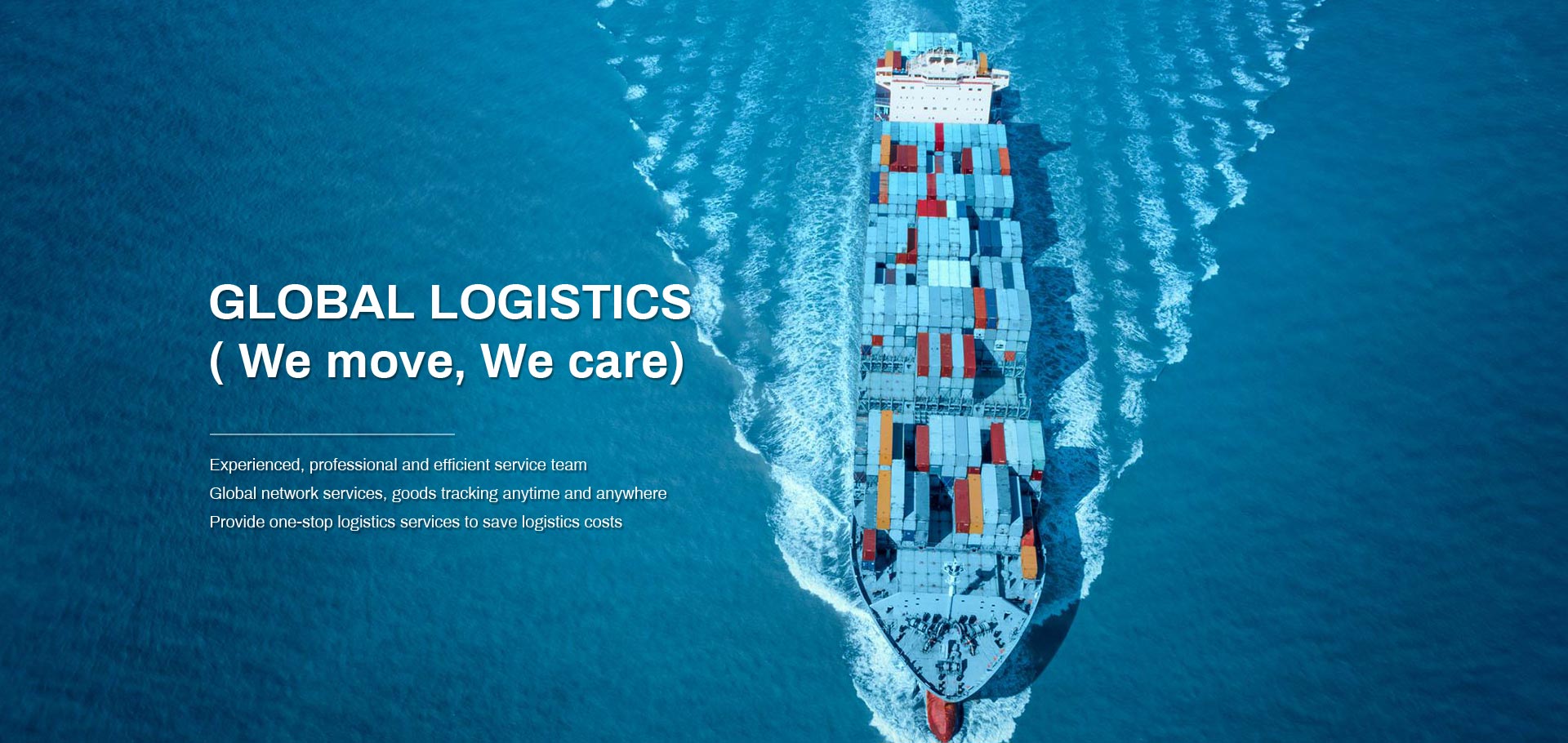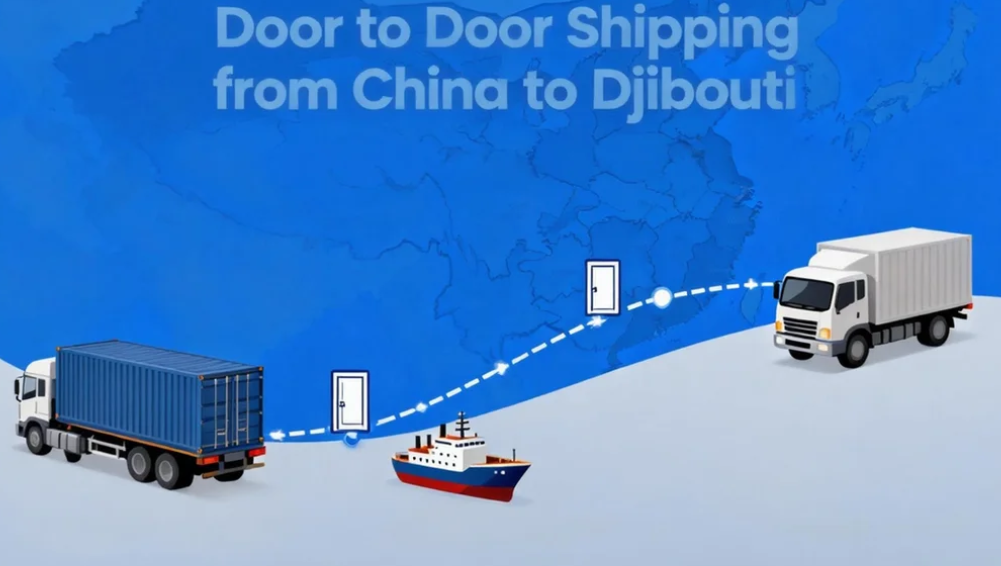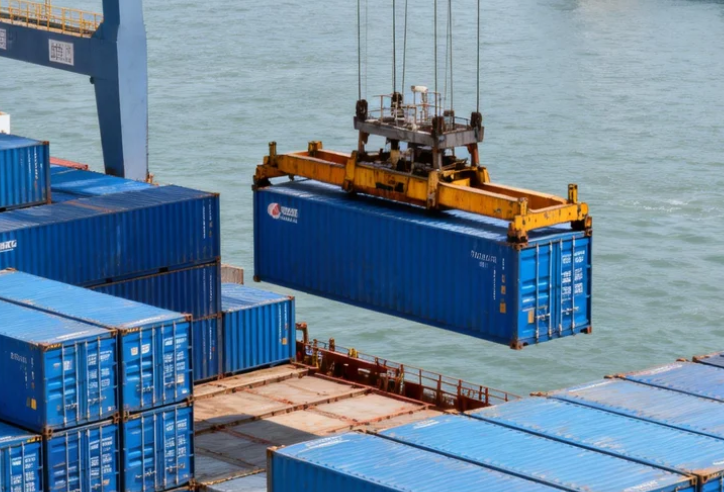Are you looking to uncover the shipping rates from China to Spain that can impact your business’s bottom line?
In this comprehensive guide, we will explore the various factors influencing shipping costs, the types of shipping services available, and compare the benefits of sea freight and air freight. Additionally, we will discuss how to choose the right shipping method and the advantages of partnering with a reliable freight forwarder. Join us as we delve into effective strategies for reducing your shipping expenses!
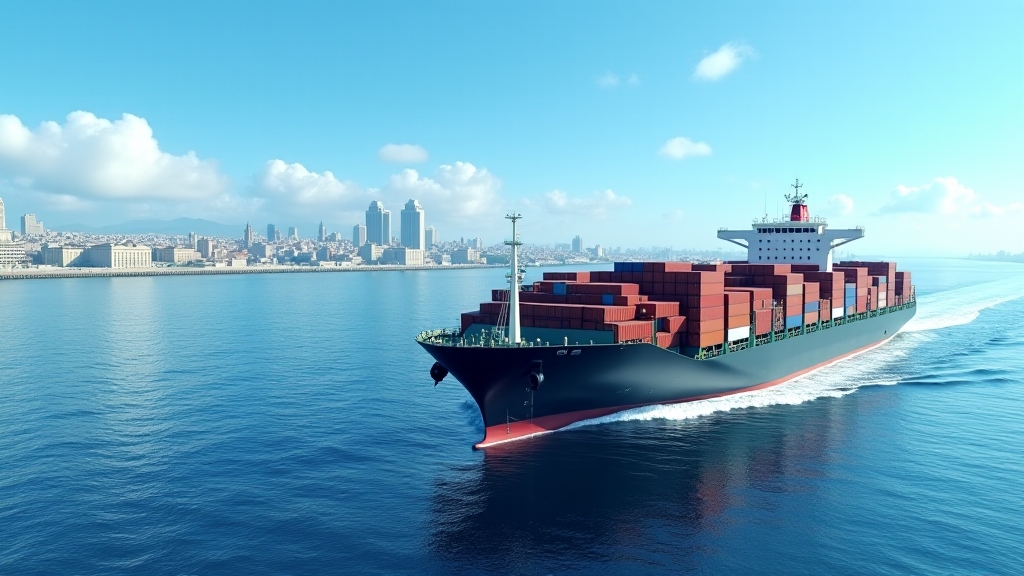
Understanding Shipping Rates from China to Spain
Factors Influencing Shipping Costs
When importing goods from China to Spain, understanding the factors that influence shipping costs is crucial for businesses aiming to optimize their logistics. The primary factors include:
Shipping Distance: The distance between the port of origin in China and the destination port in Spain significantly affects the overall shipping cost. Longer distances generally result in higher freight charges.
Type of Goods: The nature of the goods being transported, including weight, volume, and packaging, will influence shipping costs. Bulky or hazardous materials may incur additional fees.
Shipping Method: The choice of shipping method—sea freight, air freight, or rail freight—will have a direct impact on costs. Sea freight typically offers more economical rates for large shipments, while air freight is faster but more expensive.
Fuel Prices: Fluctuations in fuel prices can directly affect shipping rates. Higher fuel costs may lead to increased rates charged by freight carriers.
Customs Duties and Taxes: Duties and taxes imposed by both Chinese and Spanish customs authorities can add to the overall cost of shipping. Understanding these tariffs is essential for accurate budgeting.
Seasonality: Shipping rates can vary by season, with peak periods (such as holiday seasons) often leading to higher costs due to increased demand for shipping services.
Types of Shipping Services Available
Several shipping services are available for transporting goods from China to Spain. Here are the most common options:
Ocean Freight: This is the most cost-effective method for shipping large volumes of goods over long distances. Ocean freight is ideal for bulky items and typically offers competitive rates, especially for full-container loads (FCL) or less-than-container loads (LCL). For more detailed costs, refer to container shipping costs from china to Spain.
Air Freight: A faster option compared to sea freight, air freight is suitable for urgent shipments. Although air freight costs are significantly higher, it provides timely delivery, making it a preferred option for high-value or time-sensitive goods.
Rail Freight: An emerging option between China and Europe, rail freight combines some advantages of both air and sea freight. It offers a balance of speed and cost, making it an increasingly popular choice for certain goods.
Amazon FBA: For businesses selling on Amazon, utilizing their Fulfillment by Amazon (FBA) service can simplify logistics. Dantful International Logistics can assist with shipping goods directly to Amazon warehouses in Spain.
Consolidated Freight: This shipping service combines multiple shipments from different suppliers into one container, thereby reducing costs for each individual shipper. It is an economical solution for small to medium-sized businesses.
Door-to-Door Services: This comprehensive service includes transportation from the supplier’s location in China to the final destination in Spain, offering convenience for businesses looking to minimize logistics hassles.
Comparing Sea Freight and Air Freight Rates
Advantages of Sea Freight for Cost Savings
When comparing shipping methods, sea freight emerges as the most cost-effective choice for transporting goods from China to Spain. Here are some key advantages:
Lower Shipping Rates: Sea freight typically costs significantly less per unit than air freight, making it ideal for large shipments. For example, as of 2023, the average cost of shipping a 20-foot container from China to Spain can range from $1,200 to $2,500, depending on various factors including fuel prices and port fees.
Economies of Scale: Businesses shipping larger volumes can benefit from economies of scale, reducing the overall cost per unit. This is particularly advantageous for manufacturers seeking to import raw materials or components.
Environmental Impact: Sea freight generally has a lower carbon footprint compared to air freight, appealing to businesses that prioritize sustainability in their logistics operations.
When to Choose Air Freight Despite Higher Costs
Despite its higher costs, there are specific scenarios where air freight is the preferred choice:
Speed: For time-sensitive shipments, air freight offers unparalleled speed, ensuring that goods arrive at their destination within days rather than weeks.
High-Value Goods: When transporting high-value items, the security and reliability of air freight can justify the additional cost. Insurance costs may also be lower due to the reduced risk of damage or loss.
Perishable Goods: Products that have a short shelf life, such as food or pharmaceuticals, often require quick transportation to maintain quality and freshness. Air freight is the best option in these cases.
In conclusion, understanding the shipping rates from China to Spain involves analyzing various influencing factors and choosing the appropriate shipping method based on cost, speed, and the nature of goods. For businesses looking for a highly professional, cost-effective, and high-quality logistics partner, Dantful International Logistics offers a range of services including ocean freight, air freight, and door-to-door solutions tailored to meet your shipping needs.
Read More:
- Shipping From China To Netherlands
- Shipping From China To Spain
- Shipping From China To Germany
- Shipping From China To France
- Shipping From China to Italy
- Shipping From China To Poland
- Shipping From China to United Kingdom
Choosing the Right Shipping Method for Your Business
Key Considerations for Selecting Shipping Options
When importing goods from China to Spain, selecting the appropriate shipping method is crucial for ensuring timely delivery and cost-effectiveness. Here are several key considerations to guide your decision:
Type of Goods: The nature of the products you are importing can significantly influence your shipping choice. For instance, perishables or high-value items may require faster shipping methods, such as Air Freight, while bulk commodities may be more suited for Sea Freight.
Shipping Timeframe: Consider how quickly you need your goods. Air Freight typically takes 5 to 10 days, depending on the distance and any potential customs delays, while Sea Freight can take anywhere from 20 to 40 days. Evaluate your supply chain needs and align your shipping method accordingly.
Budget Constraints: Analyze your budget and understand the cost implications of different shipping methods. Sea Freight is generally more cost-effective for large shipments compared to Air Freight, which tends to be pricier but faster.
Volume and Weight of Goods: Larger and heavier shipments may benefit from Consolidated Freight options, which can lower your costs by sharing container space with other shipments. Conversely, smaller packages might be more efficiently sent via Door to Door services.
Customs Clearance and Duties: Always consider the customs clearance process and potential tariffs applicable for your goods. A knowledgeable freight forwarder, such as Dantful International Logistics, can assist you in navigating these complexities, ensuring compliance and minimizing delays.
Evaluating Service Providers Based on Rates and Reliability
Choosing a shipping service provider involves assessing both the pricing and reliability of their services. Here are some factors to consider:
Transparent Pricing: Look for freight forwarders who provide clear and detailed quotes. At Dantful International Logistics, we pride ourselves on offering cost-effective solutions without hidden fees. Compare rates from multiple service providers to ensure you are getting the best deal.
Track Record and Reviews: Research potential partners by reading customer reviews and case studies. A reputable freight forwarder will have a history of timely deliveries and satisfied clients. Websites like Trustpilot and Google Reviews can provide insight into their reliability.
Range of Services Offered: Ensure that the freight forwarder offers a comprehensive range of services that meet your shipping needs. This includes Customs Clearance, Insurance, and specialized services like Amazon FBA logistics. A one-stop service provider like Dantful International Logistics can streamline your logistics process.
Customer Support: Responsive and knowledgeable customer service is essential for managing any shipping issues that may arise. Choose a freight forwarder that offers consistent communication and support throughout the shipping process.
The Importance of Working with a Reliable Freight Forwarder
Benefits of Partnering with a Professional Shipping Agent
Working with a reliable freight forwarder can significantly enhance your shipping experience. Here are some key benefits:
Expert Guidance: A professional freight forwarder possesses deep knowledge of international shipping regulations, customs requirements, and documentation necessary for smooth transport. This guidance can help you avoid costly mistakes.
Cost Efficiency: Reliable freight forwarders often have established relationships with shipping lines, allowing them to negotiate better rates on your behalf. This can result in significant savings on shipping costs.
Risk Management: Shipping involves inherent risks, including delays, loss of goods, and damages. A competent freight forwarder will have strategies in place to mitigate these risks, including offering Cargo Insurance options.
Time Savings: By handling logistics, customs clearance, and documentation, professionals like Dantful International Logistics free up your time, allowing you to focus on your core business operations.
How to Find Trustworthy Freight Forwarders for Your Needs
Finding a trustworthy freight forwarder requires careful research and consideration. Here are steps to guide you in your search:
Ask for Recommendations: Reach out to other businesses in your industry for recommendations on freight forwarders they have successfully worked with.
Check Credentials: Verify the credentials of potential freight forwarders, including their license, insurance, and any industry certifications. Membership in associations like the International Federation of Freight Forwarders Associations (FIATA) can also indicate credibility.
Conduct Interviews: Schedule interviews with potential partners to discuss their services, experience, and approach to logistics. Ask about their strategies for handling common challenges encountered in international shipping.
Review Contracts Carefully: Before entering into agreements, carefully review the terms, conditions, and pricing structures. Ensure that there are no hidden fees and that you understand all aspects of the service level agreement.
Tips for Reducing Shipping Costs from China to Spain
Bulk Shipping: Opportunities for Cost Savings
One of the most effective ways to reduce shipping costs is to take advantage of bulk shipping. Here are some tips to consider:
Consolidate Shipments: By consolidating smaller shipments into one larger shipment, you can often access better rates and reduce overall shipping costs. Dantful International Logistics offers Consolidated Freight services to help you maximize savings.
Plan Ahead: If feasible, plan your shipments well in advance to avoid rush fees associated with expedited shipping. This can allow for greater flexibility in selecting cost-effective shipping methods.
Leverage Volume Discounts: If you consistently ship large volumes, negotiate with your freight forwarder for volume discounts. A reliable partner like Dantful International Logistics can help facilitate these discussions.
Negotiating Rates with Freight Forwarders
Negotiation is a crucial aspect of securing the best shipping rates. Here are some effective strategies:
Be Informed: Research current market rates and trends for shipping from China to Spain. This knowledge will empower you during negotiations.
Long-term Partnerships: Consider establishing long-term relationships with freight forwarders. This can often lead to better rates over time as they become familiar with your shipping patterns.
Explore Multiple Quotes: Don’t settle for the first quote you receive. Collect multiple quotes and be transparent with freight forwarders about competing offers. This can often lead to more favorable pricing.
By making informed decisions and leveraging the expertise of professional freight forwarders like Dantful International Logistics, businesses can optimize their shipping strategies, ensuring efficient and cost-effective importation of goods from China to Spain.

Young Chiu is a seasoned logistics expert with over 15 years of experience in international freight forwarding and supply chain management. As CEO of Dantful International Logistics, Young is dedicated to providing valuable insights and practical advice to businesses navigating the complexities of global shipping.

